前言 本文的文字及图片来源于网络,仅供学习、交流使用,不具有任何商业用途,如有问题请及时联系我们以作处理。 前文 01、python爬虫入门教程01:豆瓣Top电影爬取 基本开发环境 Python
前言
本文的文字及图片来源于网络,仅供学习、交流使用,不具有任何商业用途,如有问题请及时联系我们以作处理。
前文
01、python爬虫入门教程01:豆瓣Top电影爬取
基本开发环境
- Python 3.6
- Pycharm
相关模块的使用
- request
- sparsel
安装Python并添加到环境变量,pip安装需要的相关模块即可。

单章爬取

一、明确需求
爬取小说内容保存到本地
- 小说名字
- 小说章节名字
- 小说内容
# 第一章小说url地址 url = 'http://www.biquges.com/52_52642/25585323.html'
url = 'http://www.biquges.com/52_52642/25585323.html'
headers = {
'User-Agent': 'Mozilla/5.0 (Windows NT 10.0; WOW64) AppleWebKit/537.36 (KHTML, like Gecko) Chrome/81.0.4044.138 Safari/537.36'
}
response = requests.get(url=url, headers=headers)
print(response.text)

请求网页返回的数据中出现了乱码,这就需要我们转码了。
加一行代码自动转码。
response.encoding = response.apparent_encoding

三、解析数据
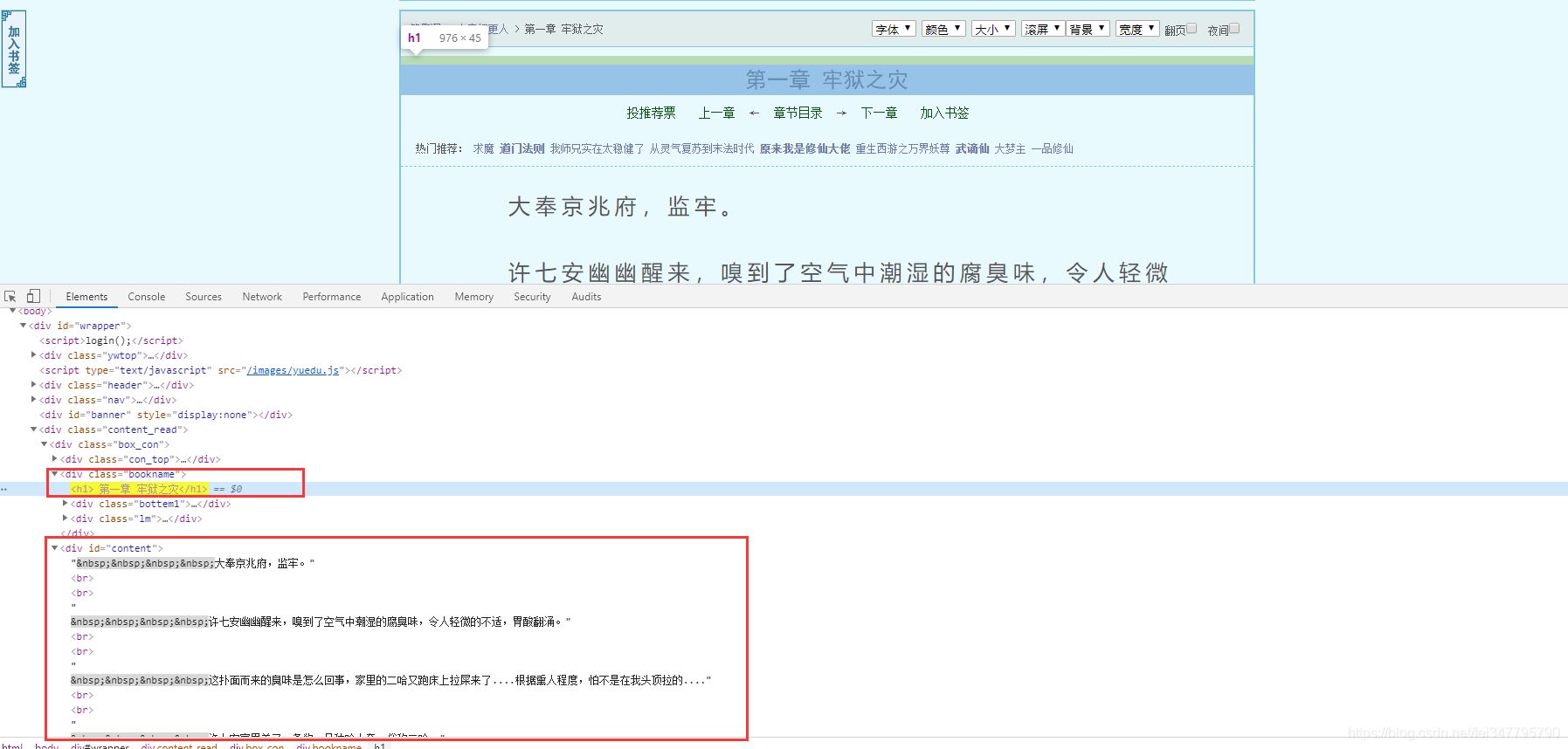
根据css选择器可以直接提取小说标题以及小说内容。
def get_one_novel(html_url):
# 调用请求网页数据函数
response = get_response(html_url)
# 转行成selector解析对象
selector = parsel.Selector(response.text)
# 获取小说标题
title = selector.css('.bookname h1::text').get()
# 获取小说内容 返回的是list
content_list = selector.css('#content::text').getall()
# ''.join(列表) 把列表转换成字符串
content_str = ''.join(content_list)
print(title, content_str)
if __name__ == '__main__':
url = 'http://www.biquges.com/52_52642/25585323.html'
get_one_novel(url)

四、保存数据(数据持久化)
使用常用的保存方式: with open
def save(title, content):
"""
保存小说
:param title: 小说章节标题
:param content: 小说内容
:return:
"""
# 路径
filename = f'{title}\\'
# os 内置模块,自动创建文件夹
if os.makedirs(filename):
os.mkdir()
# 一定要记得加后缀 .txt mode 保存方式 a 是追加保存 encoding 保存编码
with open(filename + title + '.txt', mode='a', encoding='utf-8') as f:
# 写入标题
f.write(title)
# 换行
f.write('\n')
# 写入小说内容
f.write(content)
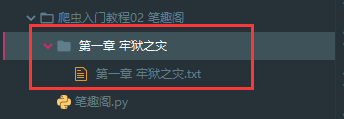
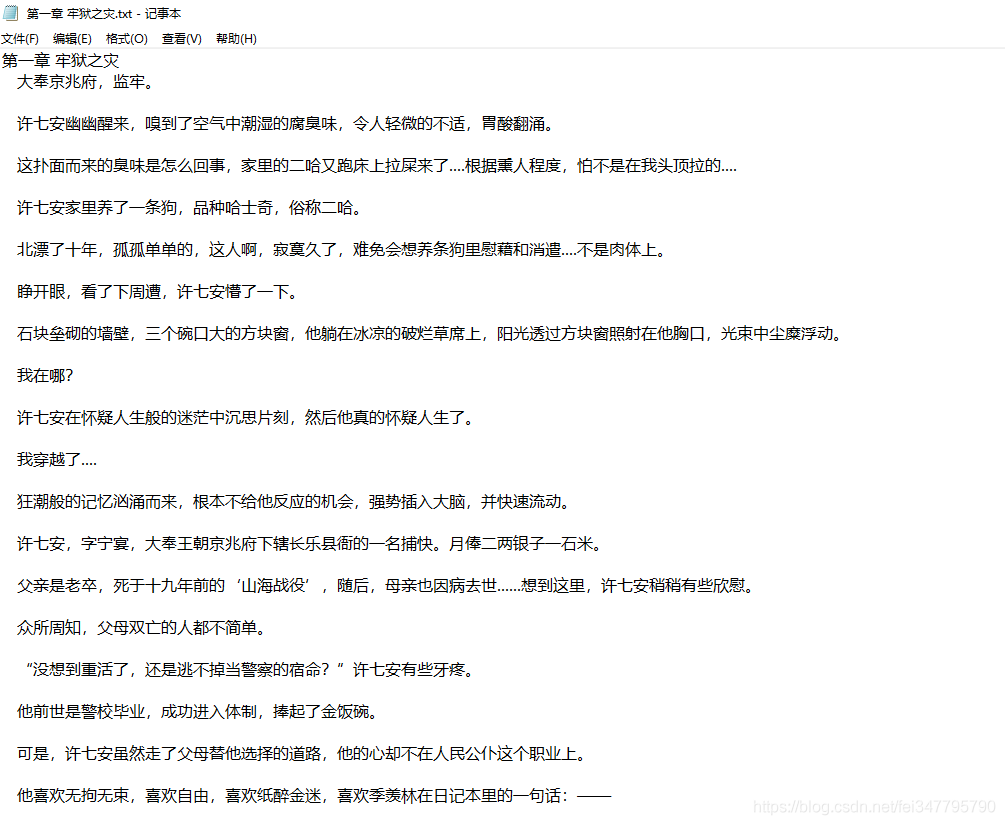
保存一章小说,就这样写完了,如果想要保存整本小说呢?
整本小说爬虫
既然爬取单章小说知道怎么爬取了,那么只需要获取小说所有单章小说的url地址,就可以爬取全部小说内容了。
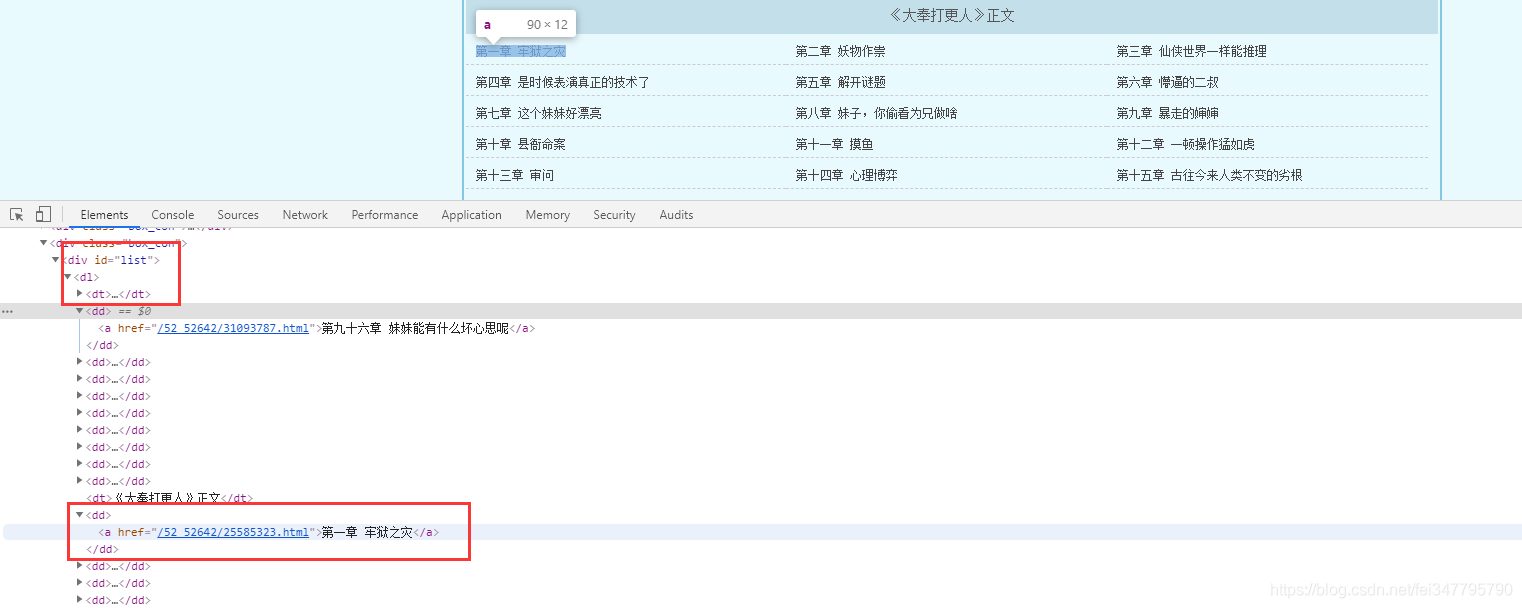
所有的单章的url地址都在 dd 标签当中,但是这个url地址是不完整的,所以爬取下来的时候,要拼接url地址。
def get_all_url(html_url):
# 调用请求网页数据函数
response = get_response(html_url)
# 转行成selector解析对象
selector = parsel.Selector(response.text)
# 所有的url地址都在 a 标签里面的 href 属性中
dds = selector.css('#list dd a::attr(href)').getall()
for dd in dds:
novel_url = 'http://www.biquges.com' + dd
print(novel_url)
if __name__ == '__main__':
url = 'http://www.biquges.com/52_52642/index.html'
get_all_url(url)
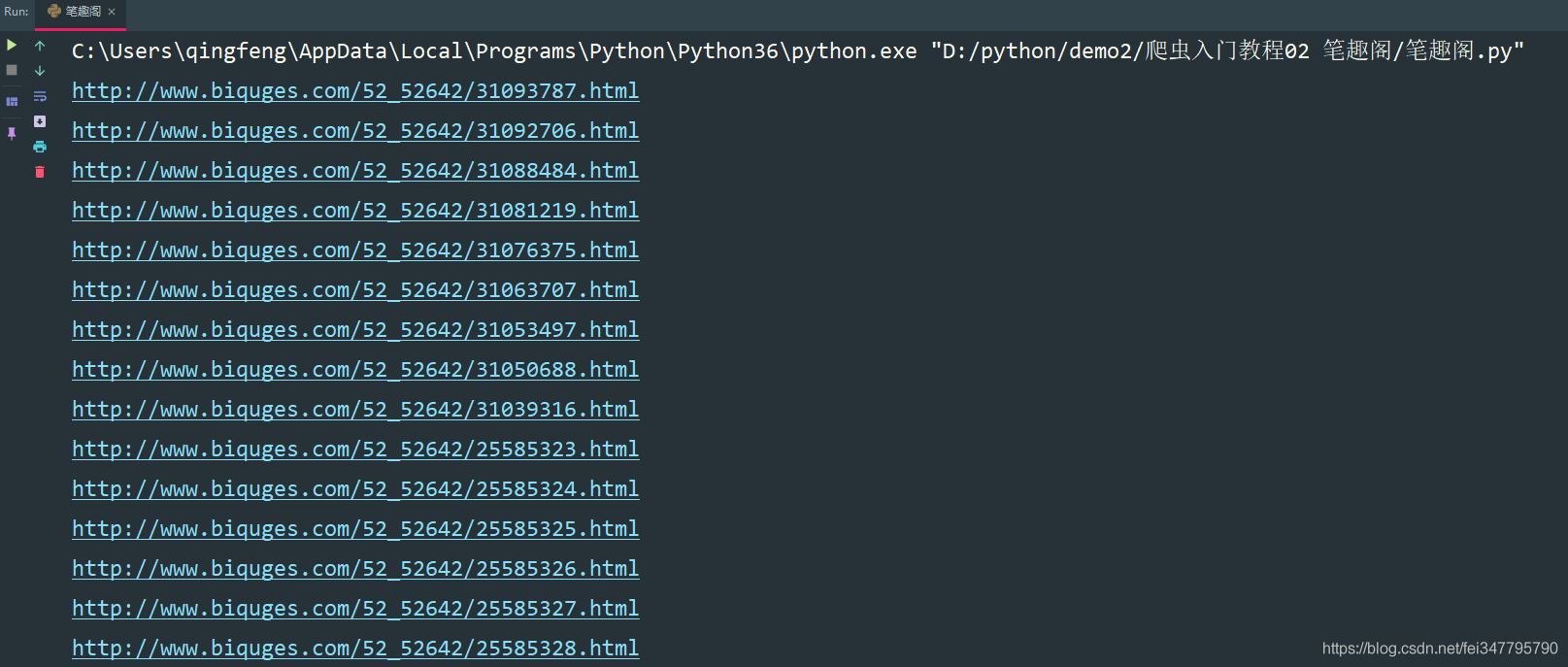
这样就获取了所有的小说章节url地址了。
爬取全本完整代码
import requests
import parsel
from tqdm import tqdm
def get_response(html_url):
headers = {
'User-Agent': 'Mozilla/5.0 (Windows NT 10.0; WOW64) AppleWebKit/537.36 (KHTML, like Gecko) Chrome/81.0.4044.138 Safari/537.36'
}
response = requests.get(url=html_url, headers=headers)
response.encoding = response.apparent_encoding
return response
def save(novel_name, title, content):
"""
保存小说
:param title: 小说章节标题
:param content: 小说内容
:return:
"""
filename = f'{novel_name}' + '.txt'
# 一定要记得加后缀 .txt mode 保存方式 a 是追加保存 encoding 保存编码
with open(filename, mode='a', encoding='utf-8') as f:
# 写入标题
f.write(title)
# 换行
f.write('\n')
# 写入小说内容
f.write(content)
def get_one_novel(name, novel_url):
# 调用请求网页数据函数
response = get_response(novel_url)
# 转行成selector解析对象
selector = parsel.Selector(response.text)
# 获取小说标题
title = selector.css('.bookname h1::text').get()
# 获取小说内容 返回的是list
content_list = selector.css('#content::text').getall()
# ''.join(列表) 把列表转换成字符串
content_str = ''.join(content_list)
save(name, title, content_str)
def get_all_url(html_url):
# 调用请求网页数据函数
response = get_response(html_url)
# 转行成selector解析对象
selector = parsel.Selector(response.text)
# 所有的url地址都在 a 标签里面的 href 属性中
dds = selector.css('#list dd a::attr(href)').getall()
# 小说名字
novel_name = selector.css('#info h1::text').get()
for dd in tqdm(dds):
novel_url = 'http://www.biquges.com' + dd
get_one_novel(novel_name, novel_url)
if __name__ == '__main__':
novel_id = input('输入书名ID:')
url = f'http://www.biquges.com/{novel_id}/index.html'
get_all_url(url)

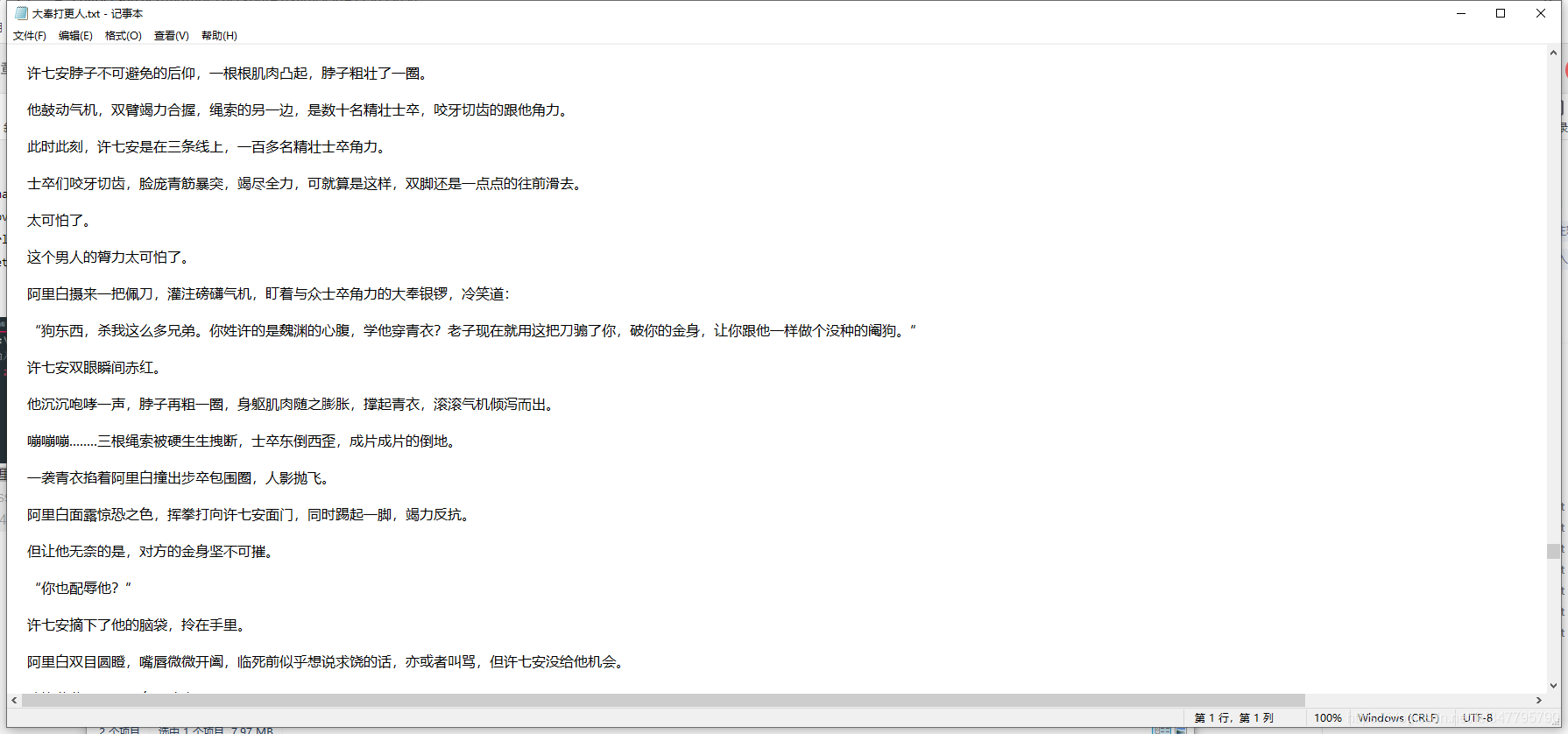
到此这篇关于Python爬虫入门教程02之笔趣阁小说爬取的文章就介绍到这了,更多相关Python爬虫笔趣阁小说爬取内容请搜索易盾网络以前的文章或继续浏览下面的相关文章希望大家以后多多支持易盾网络!
